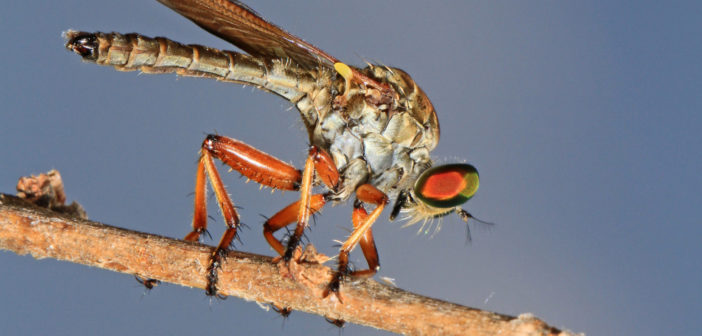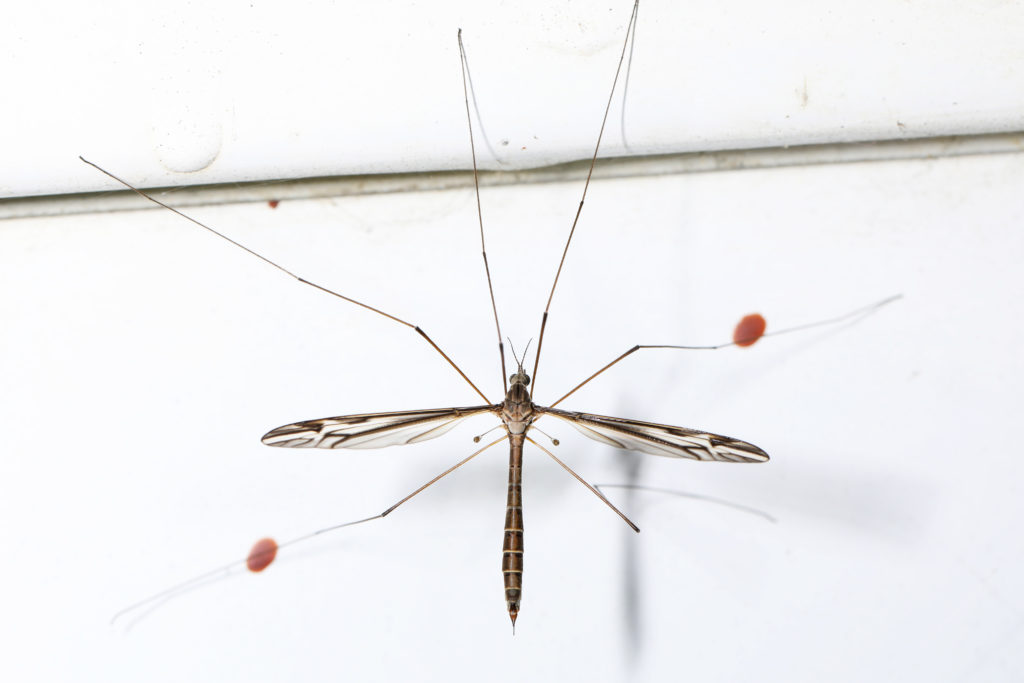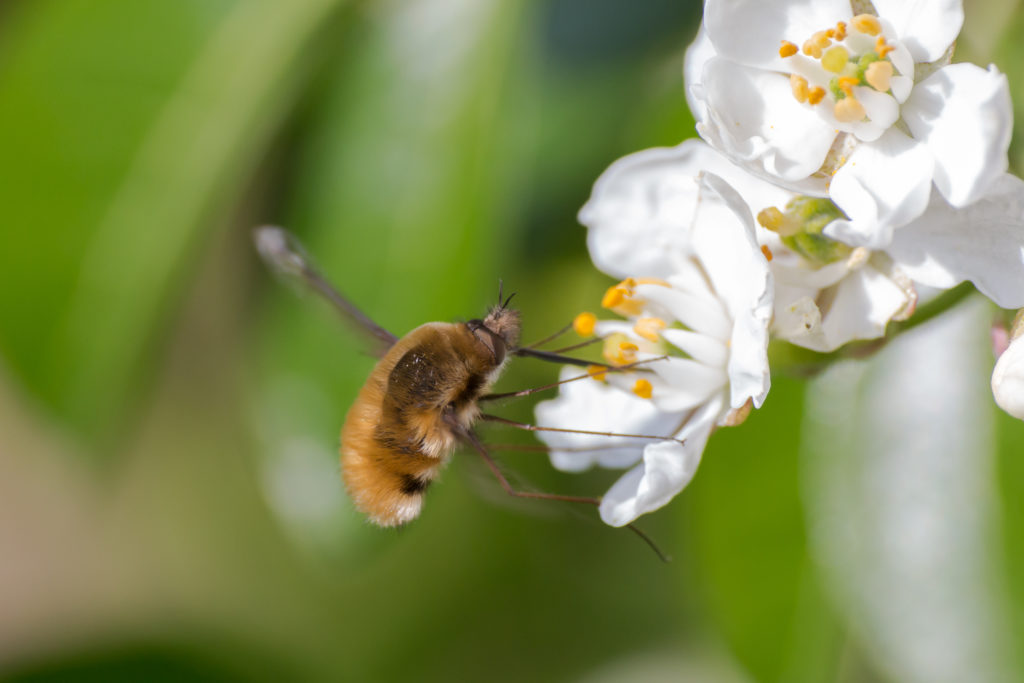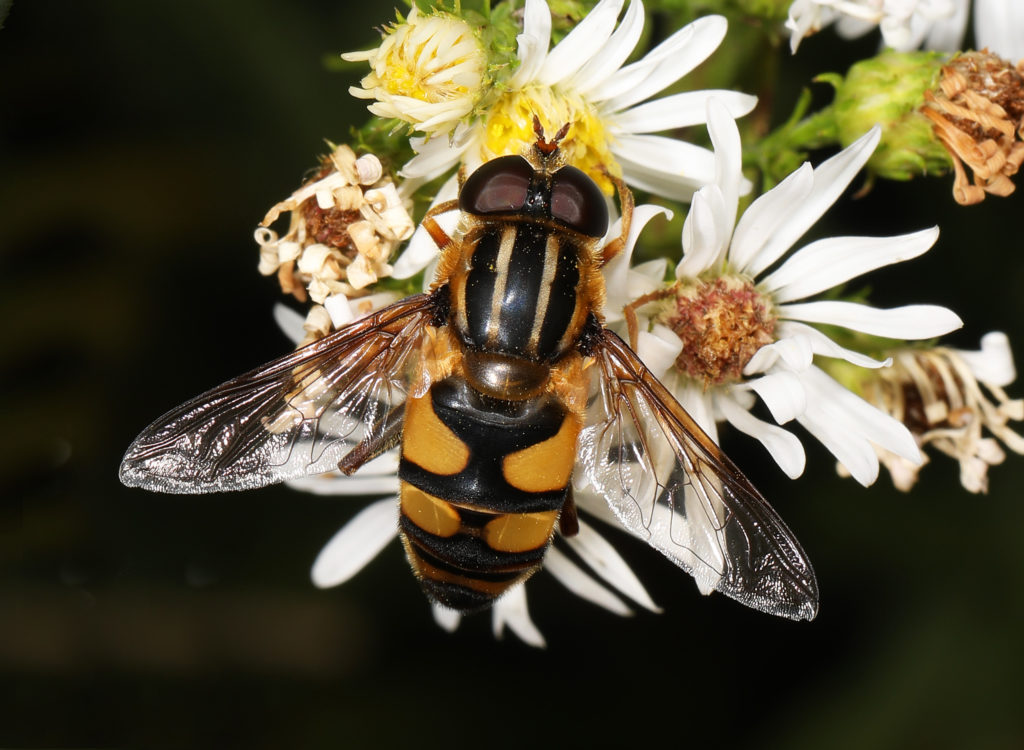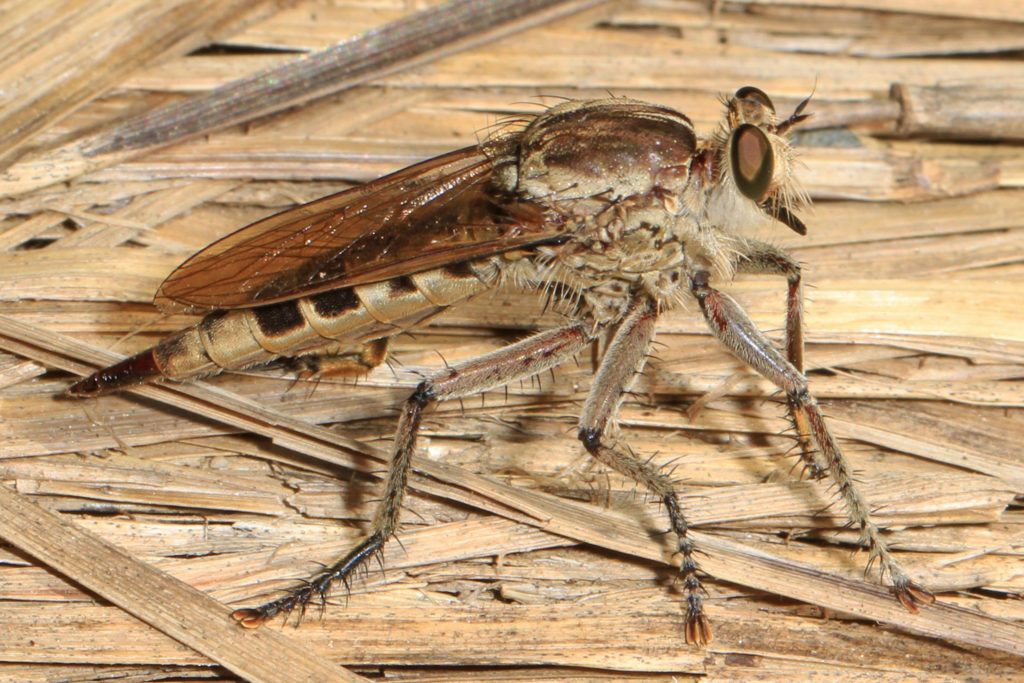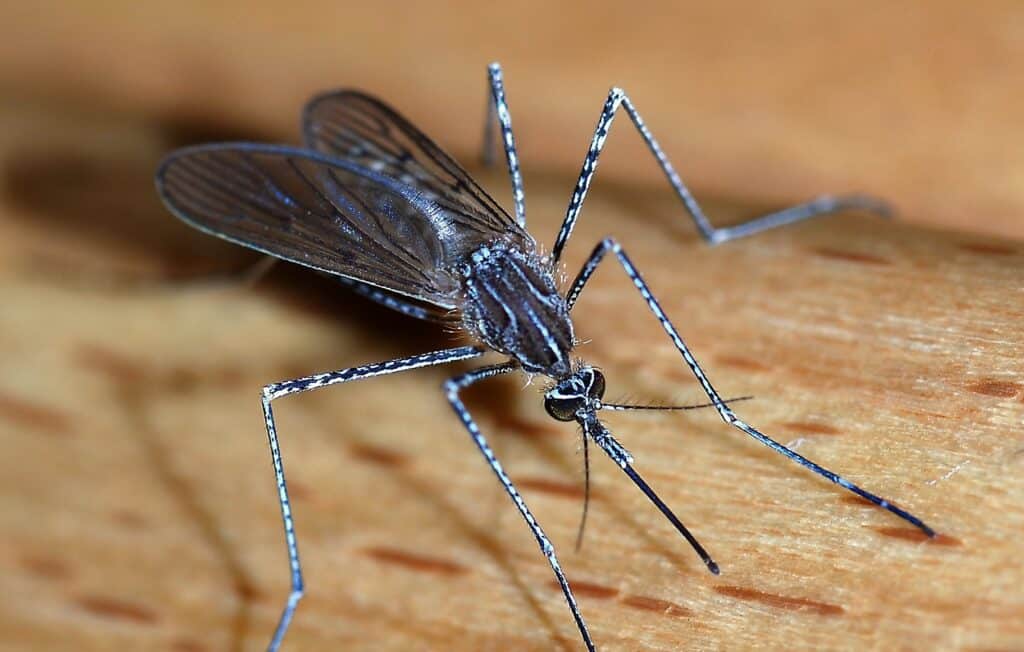When you’re out in your yard, look for these flies that don’t look like flies. Flies have these characteristics in common. But they otherwise come in all shapes and sizes. what they have in common is only two wings instead of four, as almost all other insects do, and other physical characteristics, including:
- Two wings (the front ones), instead of four, as most other insects have.
- The hind wings are replaced with tiny club-shaped balancing organs called halteres.
- A large and moveable head.
- Compound eyes that are commonly very large.
- Mouthparts that are adapted for a liquid diet. They either suck, pierce and suck, or are sponge-like, depending on the species.
Crane Flies
Crane flies aren’t giant mosquitoes. Instead, they’re flies in the family Tipulidae, delicate, harmless, and don’t bite or sting. Belonging to one of the largest families of flies, with around 2,400 species in the world, some large ones are 2.5 inches long (6.4 cm) with a wingspan of 3.0 inches (7.6 cm). Most, however, fall in the 0.4–1.0 inch (10-25 mm) range. In spring and early summer, you might notice them clinging to the siding of your house or window screens. The crane fly shown here is a female, as indicated by the pointed “ovipositor” at the tip of her abdomen—it isn’t used for stinging but for depositing eggs.
Bee Flies
The Greater Bee Fly is named for its resemblance to a bumblebee. It’s one of about 280 species in the Bombyliidae family of flies. Unlike bees, they’re harmless and don’t sting. As larvae, they’re parasites, and as adults, they’re pollinators that feed on nectar and pollen. The long black needle-like protrusion at the front of its head is rigid and looks sharp and dangerous, but it’s used only for sucking nectar from flowers. Bee flies are found in woodlands, meadows, and flower gardens throughout North America and most other parts of the world.
Hoverflies
Hoverflies are so-called because they can hover like a hummingbird (and they can also fly backward like them.) They’re also called flower flies because they’re highly beneficial (and under-appreciated) pollinators that visit flowers for nectar and pollen. There are about 6,000 species found around the world except Antarctica.
Robber flies
These flies are powerful and aggressive predators belonging to the Asilidae family. They’re also called assassin flies and like to ambush prey in flight. There are over 7,000 species found worldwide except Antarctica.
Mosquito
The word “mosquito” is Spanish for “little fly,” which is what they are. They number about 3,600 species in the family Culicidae. Only the females bite, and they do so because they need the nutrients in blood to make eggs. They sometimes ingest pathogens when they bite and transfer them to other hosts. Mosquitoes are responsible for more disease-related deaths than any other animal in the world. Males feed on sugary foods, such as nectar. The males of at least one species, Culex quinquefasciatus, will feed on blood if supplied to them, but it shortens their life span.


